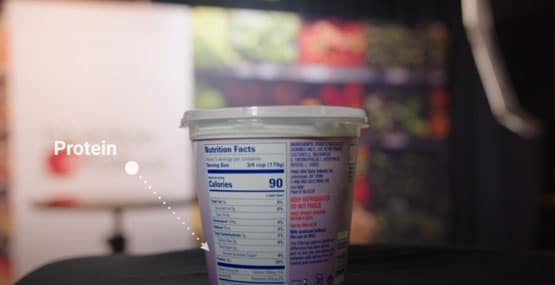
Hacks for healthy snacks
When it comes to snacks, healthy choices are essential for maintaining a balanced diet and fueling your body with nutritious foods. By shopping smart and selecting wholesome options, you can satisfy your cravings while supporting your overall health. You can encourage your entire family to healthier choices, by following these simple suggestions and the tips and hacks our dietitians offer as part of our grocery shopping videos.
- Fresh fruits and vegetables: Fresh fruits and vegetables are packed with essential vitamins, minerals, and fiber. Choose a variety of colorful fruits like apples, berries, or oranges. For vegetables, consider options like carrot sticks, cherry tomatoes, or cucumber slices. These snacks provide natural sweetness and crunch while keeping you hydrated and nourished.
- Nutritious nuts and seeds: Nuts and seeds make great snacks as they are rich in healthy fats, protein, and fiber. Almonds, walnuts, pumpkin seeds, and sunflower seeds are really nutritious options. When shopping for nuts and seeds, opt for unsalted or lightly salted varieties to keep sodium intake in check. Remember to control the portions though, since they are high in calories. A small handful makes a satisfying snack between meals.
- Wholesome whole grains: Whole grain snacks are a great way to provide lasting energy and essential nutrients. Look for whole grain crackers, whole grain granola bars, or whole wheat pretzels. These snacks offer more fiber and nutrients compared to the refined carbohydrates. Check the ingredient list and choose snacks with whole grains listed as one of the first ingredients.
- Dairy or dairy alternatives: Dairy products like yogurt or cheese can be fantastic snack options. Look for low-fat or fat-free varieties to reduce saturated fat intake. Greek yogurt is a great choice since it is higher in protein. If you prefer non-dairy alternatives, consider options like almond milk yogurt or soy cheese. These alternatives provide calcium and other essential nutrients, including vitamin D. (That doesn't mean a child should drink any of the nut milks—they only have 1 gram of protein in a glassful, while regular milks have 8 grams).
- Reading the Food Labels: When shopping for snacks, take the time to read food labels. Pay attention to the ingredients, nutritional content, and serving sizes. (One cookie company lists 180 calories for a serving size—but the serving size only 1/4 cookie, meaning a whole cookie is 720 calories!) Choose snacks with recognizable and minimal ingredients, avoiding those high in added sugars, unhealthy fats, or extra additives. Be cautious of "low-fat" snacks, as they may be higher in added sugars or unhealthy additives to compensate for flavor.
Conclusion: Shopping for healthy snacks can be a fun and rewarding experience. Opt for fresh fruits and vegetables, nutritious nuts and seeds, wholesome whole grains, and dairy or dairy alternatives. Be mindful of carefully reading food labels and choosing snacks with few additives. By making these choices, you can enjoy delicious and nutritious snacks that support your family's overall health and well-being. Please view our Shopping for healthy snacks video.





